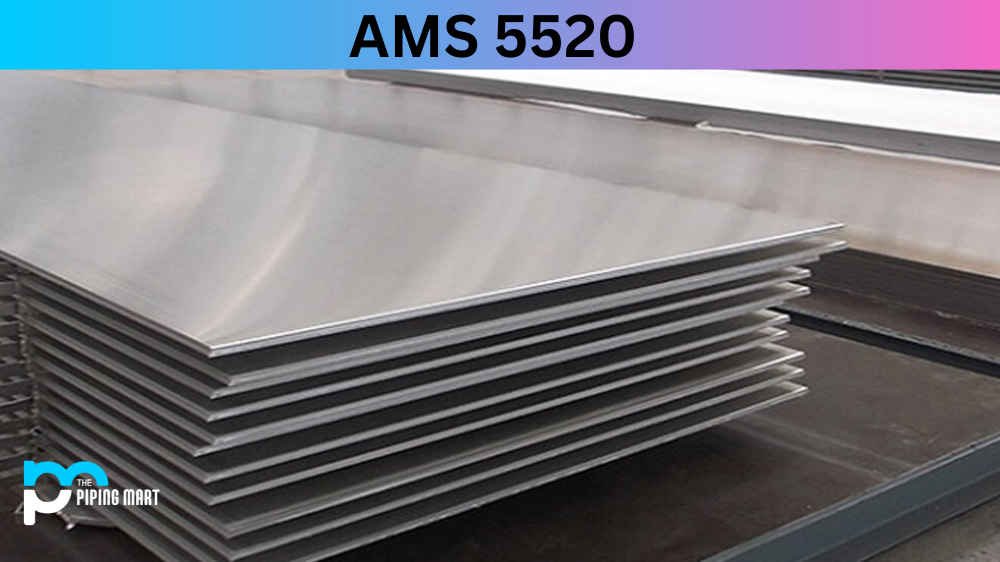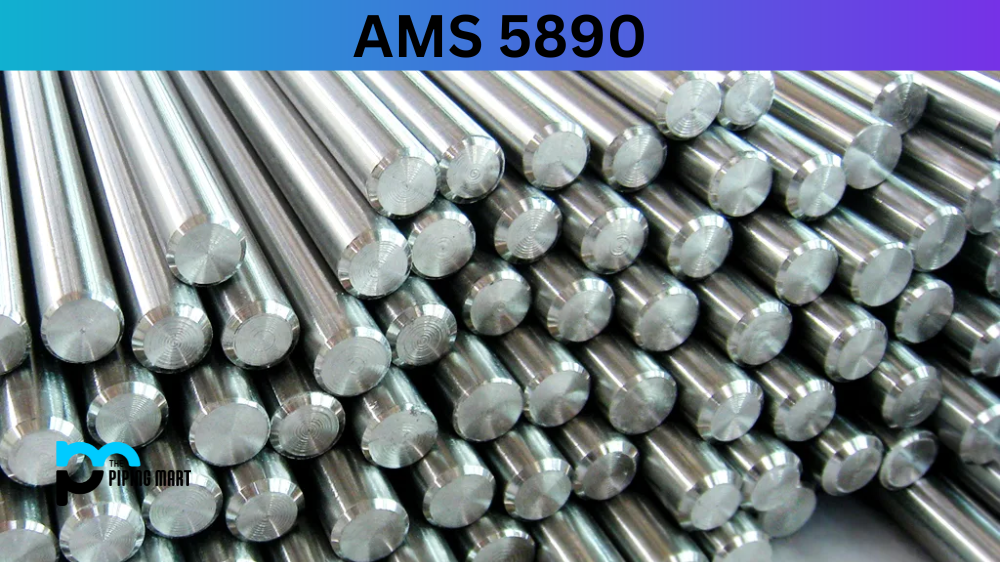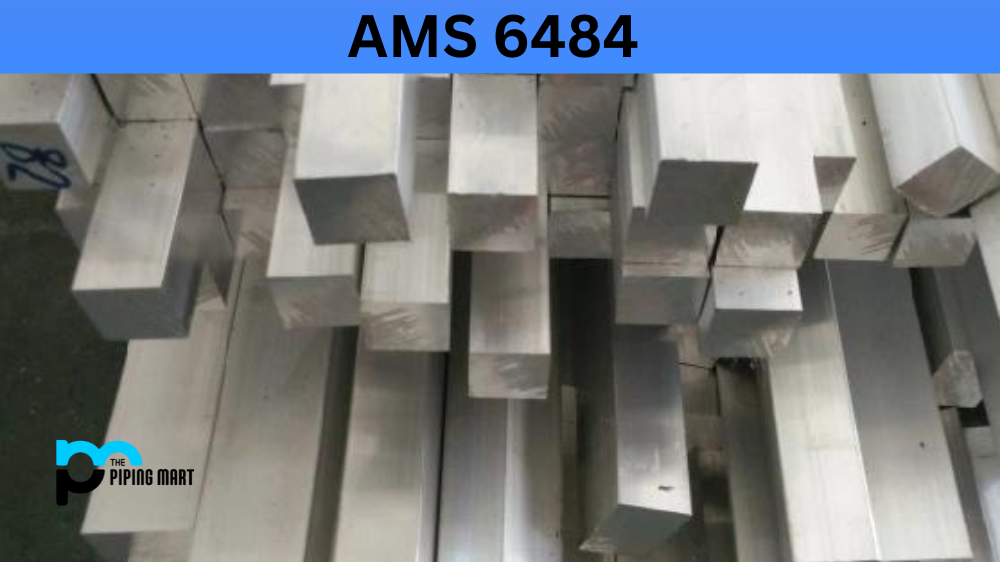AMS5520 is a commonly used stainless steel alloy in the aviation and aerospace industry. It has high resistance to corrosion, excellent strength and toughness, and outstanding weldability. This blog post will discuss the composition, physical and mechanical properties, uses, hardness, and heat treatment of AMS5520.
What is AMS 5520?
AMS 5520 (also known as 15-7 PH Stainless Steel) is a widely used specification that pertains to stainless steel materials. Specifically, it covers the requirements for stainless steel sheet, strip, and plate grades used in high-temperature service. It is an important document for manufacturers, suppliers, and end-users as it ensures that the materials meet the necessary quality and performance standards. With the increasing demand for superior quality stainless steel products, adherence to AMS5520 becomes all the more important for ensuring reliable and consistent performance. Whether it be in the aerospace, chemical processing, or automotive industry, AMS5520 is a crucial specification that enables high-performance materials to meet the stringent demands of various applications.
AMS 5520 Composition
AMS 5520 is a nickel-chromium alloy that contains 18% chromium and 8% nickel. It also has small amounts of molybdenum, titanium, and columbium. Including these elements gives AMS 5520 exceptional resistance to corrosion and high-temperature strength.
| Element | Content (%) |
|---|---|
| Iron, Fe | 74.9 |
| Chromium, Cr | 15 |
| Nickel, Ni | 7 |
| Molybdenum, Mo | 2 |
| Aluminum, Al | 1.1 |
AMS 5520 Physical Properties
AMS 5520 has a density of 7.9 g/cm3, a melting point of 1398°C, and a thermal expansion coefficient of 17.3 µm/m-K. It has a thermal conductivity of 14.6 W/m-K and an electrical conductivity of 11.5% IACS. AMS 5520 has a magnetic permeability that is slightly lower than that of austenitic stainless steel.
AMS 5520 Mechanical Properties
AMS 5520 has excellent tensile strength, yield strength, and elongation. In the annealed condition, it has a tensile strength of 620 MPa (90 ksi), a yield strength of 275 MPa (40 ksi), and an elongation of 45%. When cold-worked, the tensile strength can increase to 965 MPa (140 ksi). AMS 5520 also has good creep and stress rupture properties at high temperatures.
| Properties | Metric | Imperial |
|---|---|---|
| Tensile strength | 900 MPa | 131000 psi |
| Yield strength (@ strain 0.200%) | 380 MPa | 55100 psi |
| Elastic modulus | 190-210 GPa | 27557-30458 ksi |
| Poisson’s ratio | 0.27-0.30 | 0.27-0.30 |
| Elongation at break | 30% | 30% |
| Hardness, Rockwell B (converted from Brinell hardness) | 88 | 88 |
AMS 5520 Equivalents
- AMS 5520
- AMS 5657
- ASTM A564 (632)
- ASTM A579 (632)
- ASTM A693 (632)
- ASTM A705 (632)
- DIN 1.4532
- DIN 1.4574
- MIL S-8955
- AMS 5812
- AMS 5813
AMS 5520 Uses
AMS 5520 is used in various applications in the aerospace and aviation industries. It is commonly used to manufacture turbine engine components, such as combustion chambers, afterburners, and transition ducts. AMS 5520 is also used in exterior and interior aircraft components, such as exhaust systems, fuel tanks, and hydraulic tubing.
AMS 5520 Hardness
AMS 5520 has a typical hardness of 25 HRC when annealed. However, the hardness can be increased up to 50 HRC with heat treatment. This makes AMS 5520 suitable for high-stress applications that require high hardness, such as compressor blades and vanes.
AMS 5520 Heat Treatment
Heat treatment is often used to improve the mechanical properties of AMS 5520. The most common heat treatment method is solution annealing, which involves heating the alloy to 1050-1100°C and holding it at that temperature for a specific time. Afterwards, the alloy is rapidly quenched in water or oil to produce a fully austenitic microstructure. This process results in improved corrosion resistance, flexibility, and toughness.
Conclusion:
AMS 5520 material is an alloy of stainless steel widely used in the aerospace and aviation industries. Its excellent corrosion resistance, high-temperature strength, and weldability make it an ideal material for turbine engine components and aircraft parts. Manufacturers can design and manufacture superior quality by understanding the composition, physical and mechanical properties, uses, hardness, and heat treatment of AMS 5520. These high-performance aerospace parts can withstand the harshest environments.

Meet Bhavesh, a seasoned blogger with a wealth of knowledge and experience. From metal products manufacturing to retail, Bhavesh has a diverse background in various industries and is dedicated to sharing his insights and expertise with readers.



